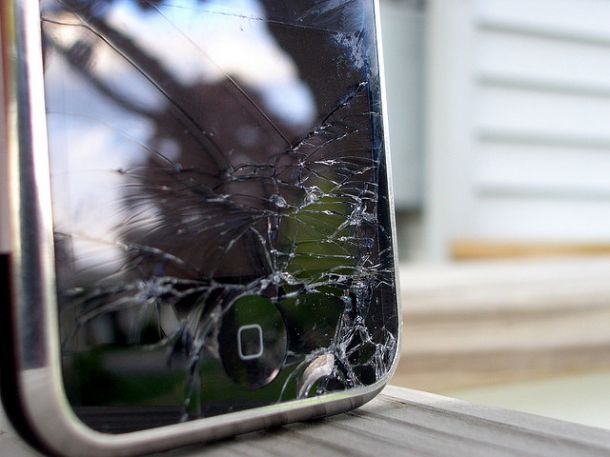
27 Mar Apple Patent To Reduce Damage In iPhones From Drops
Nearly every smartphone or tablet owner has experienced that heart stopping fear, as they watch, almost in slow motion, their device falling to the ground.
While most of the time the device will come away with little more than a couple of scratches, you may have found yourself unlucky enough to have a great big crack or a shattered screen as a souvenir of your device’s tumble.
However, the future could see Apple defying the laws of gravity (so to speak) to help a dropped iPhone and other electronic devices better survive the fall.
The patent named “Protective Mechanism For An Electronic Device” was filed by Apple in the U.S. last week (and initially reported by AppleInsider), detailing how Apple plans to reduce damage done to devices after a fall.
The patent describes two methods that could be used to achieve this, with the first method outlining that the on-board sensors would detect how far and how fast the phone is falling and reorient its position. This would mean, that the phone would actually rotate mid-flight to ensure it lands on a more durable spot such as the back, rather than on a more fragile location like the display screen.
How would they do this though? Well, the patent outlines that the phone would be equipped with a “protective mechanism” that might use a canister of compressed gas to alter its orientation.
As the patent application describes it:
The other method described by the patent, details how the speed at which the phone is falling could actually be slowed. To achieve this, the protective mechanism would trigger an airfoil that would lessen the velocity of the device and cushion the blow once it reaches the ground.
As explained in the patent:
The patent did mention the iPhone by name, however, it did extend the concept to other smartphones, tablets, laptops, portable music players and digital cameras.
Even though this piece of incredible innovation is quite a long way from being realised, it certainly makes the future of smartphones much more exciting and more ‘life’ friendly.

